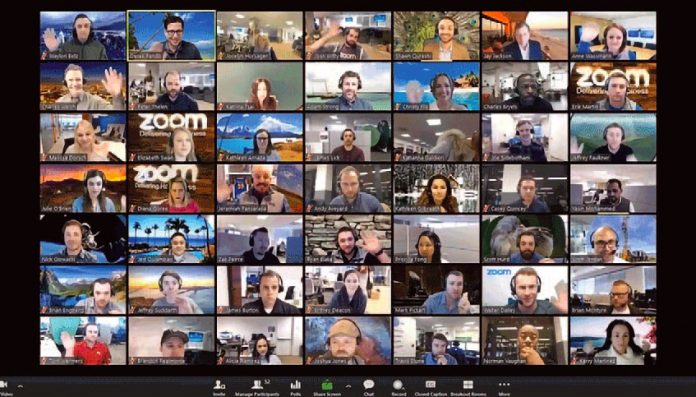Has the coronavirus crisis finally cracked the online teaching practice conundrum, asks Melanie Butler
London is in lock down. Colleges, universities and private language schools are all closed. But the teacher training department at International House London is having a “miniboom”, according to Assistant Director, Jessica Andrews.
All their Celta courses, the Cambridge four-week initial training programmes, are running, and the part-time ones are proving particularly popular with furloughed Londoners and those working at home. And there is no shortage of learners wishing to sign up for the ‘practice classes’ where trainee teachers try out their skills. “We have a waiting list,” reports Andrews.
But how are the teaching practice sessions taking place? The answer is: online.
Distance teacher training is nothing new in the world of English language teaching. The ‘Distance Delta’, as the Cambridge Diploma programme run by International House and the British Council is known, is now more than 35 years old, while the NILE Norwich Masters course is over 20 years old as, indeed, are many of the Masters courses listed on page 24. And online Celta courses have been available for a decade.
But until Covid-19, the impossibility of providing good teaching practice online, especially for group classes, has meant that all pre-experience training had a face-to-face element.
It is worth noting that teaching practice, or practicums, are not given the same importance across all cultures. In the US, practicums are often optional, with theory taking pride of place. In China, observation of ‘master’ teachers is seen as key. In Britain, and to a lesser extent throughout the Commonwealth, experience in the classroom is seen as essential for pre-experience training, though not for post-graduate courses like Masters degrees, which in the UK have traditionally been taken by teachers after several years of classroom experience.
However, demand from overseas markets for Masters degrees which do not require classroom experience, but which do offer classroom practice, has meant that campus-based post-graduate degrees now offer teaching experience. This remains extremely rare, however, for distance degrees, none of which, as far as we know, have turned to an online alternative.
For initial training courses, such as those run by Cambridge, face-to-face teaching
“In an astonishingly short time, online teaching practice was possible.”
practice remains a sine qua non. That is, until the UK government closed schools to most students on 23 March, leaving trainees on Celta courses stranded in mid-course. While in-put sessions could be given online, Cambridge rules required teaching practice to be face-to-face.
Faced with trainees, like those at IH London, who had only one more session to do before they could complete their course, Cambridge initially allowed for one of the compulsory classroom practices to take place online.
They then contacted many of the larger training providers to see how the situation could be managed. Discussions ensued involving technological tools and possible tweaks to criteria such as group sizes and observation schemes. In an astonishingly short time, online teaching practice was possible. But only for as long as the coronavirus crisis made it necessary.
Covid-19 may have made this necessary, but it is new technological tools which have made it possible. While the earliest online teaching platforms worked well with one-to-one teaching, the newer multi-user interfaces have brought the classroom into the teacher’s home.
IH London, for example, uses Zoom, which works well with groups of up to ten students and allows the teacher to simulate group work by putting students into digital break rooms.
Online education is particularly suited to classroom observation, with course tutors able to see what exactly is happening without intruding in the lesson. While the ease of recording helps teachers in receiving feedback.
On top of this, in a world where more and more EFL teachers are working online, practising on line will also become increasingly necessary.
But this is not a panacea. Younger learners may bridle at the physical restrictions, and it may be harder to vary the pace and rhythm of the lesson and to build group cohesion. It may also, as some IH London students have commented, be less fun.
Certainly, online practicums should not be seen as a complete replacement for face-to-face practice, although they can certainly complement it. When the lockdowns are over, Cambridge should certainly re-instate face-to-face practice. Were they to banish online teaching practice completely, they would be banishing a useful tool.







